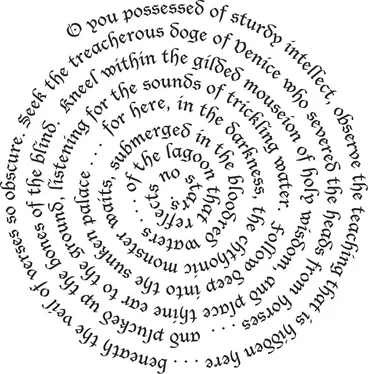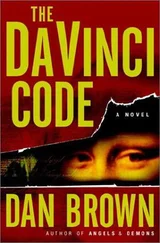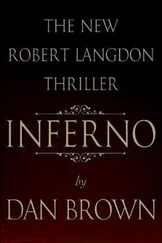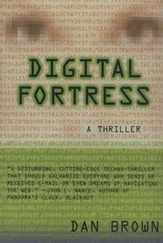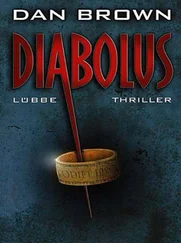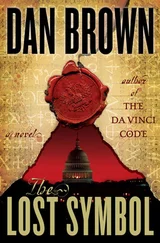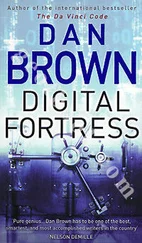Dan Brown - Inferno - A Novel
Здесь есть возможность читать онлайн «Dan Brown - Inferno - A Novel» весь текст электронной книги совершенно бесплатно (целиком полную версию без сокращений). В некоторых случаях можно слушать аудио, скачать через торрент в формате fb2 и присутствует краткое содержание. Год выпуска: 2013, ISBN: 2013, Издательство: Doubleday, Жанр: Старинная литература, на английском языке. Описание произведения, (предисловие) а так же отзывы посетителей доступны на портале библиотеки ЛибКат.
- Название:Inferno: A Novel
- Автор:
- Издательство:Doubleday
- Жанр:
- Год:2013
- ISBN:978-0-385-53786-5
- Рейтинг книги:4 / 5. Голосов: 1
-
Избранное:Добавить в избранное
- Отзывы:
-
Ваша оценка:
- 80
- 1
- 2
- 3
- 4
- 5
Inferno: A Novel: краткое содержание, описание и аннотация
Предлагаем к чтению аннотацию, описание, краткое содержание или предисловие (зависит от того, что написал сам автор книги «Inferno: A Novel»). Если вы не нашли необходимую информацию о книге — напишите в комментариях, мы постараемся отыскать её.
Inferno: A Novel — читать онлайн бесплатно полную книгу (весь текст) целиком
Ниже представлен текст книги, разбитый по страницам. Система сохранения места последней прочитанной страницы, позволяет с удобством читать онлайн бесплатно книгу «Inferno: A Novel», без необходимости каждый раз заново искать на чём Вы остановились. Поставьте закладку, и сможете в любой момент перейти на страницу, на которой закончили чтение.
Интервал:
Закладка:
As the van maneuvered through tighter streets and more densely populated neighborhoods, Langdon began to grasp the perverse logic that had led Zobrist to choose downtown Istanbul as the epicenter of a pandemic.
East meets West .
The crossroads of the world .
Istanbul had, at numerous times in history, succumbed to deadly plagues that killed off enormous portions of its population. In fact, during the final phase of the Black Death, this very city had been called the “plague hub” of the empire, and the disease was said to have killed more than ten thousand residents a day. Several famous Ottoman paintings depicted townspeople desperately digging plague pits to bury mounds of corpses in the nearby fields of Taksim.
Langdon hoped Karl Marx was wrong when he said, “History repeats itself.”
All along the rainy streets, unsuspecting souls were bustling about their evening’s business. A pretty Turkish woman called her children in to dinner; two old men shared a drink at an outdoor café; a well-dressed couple walked hand in hand beneath an umbrella; and a tuxedoed man leaped off a bus and ran down the street, sheltering his violin case beneath his jacket, apparently late for a concert.
Langdon found himself studying the faces around him, trying to imagine the intricacies of each person’s life.
The masses are made up of individuals .
He closed his eyes, turning from the window and trying to abandon the morbid turn his thoughts had taken. But the damage was done. In the darkness of his mind, an unwanted image materialized—the desolate landscape of Bruegel’s Triumph of Death —a hideous panorama of pestilence, misery, and torture laying ruin to a seaside city.
The van turned to the right onto Torun Avenue, and for a moment Langdon thought they had arrived at their destination. On his left, rising out of the mist, a great mosque appeared.
But it was not Hagia Sophia.
The Blue Mosque , he quickly realized, spotting the building’s six fluted, pencil-shaped minarets, which had multiple şerefe balconies and climbed skyward to end in piercing spires. Langdon had once read that the exotic, fairy-tale quality of the Blue Mosque’s balconied minarets had inspired the design for Cinderella’s iconic castle at Disney World. The Blue Mosque drew its name from the dazzling sea of blue tiles that adorned its interior walls.
We’re close , Langdon thought as the van sped onward, turning onto Kabasakal Avenue and running along the expansive plaza of Sultanahmet Park, which was situated halfway between the Blue Mosque and Hagia Sophia and famous for its views of both.
Langdon squinted through the rain-swept windshield, searching the horizon for the outline of Hagia Sofia, but the rain and headlights made visibility difficult. Worse still, traffic along the avenue seemed to have stopped.
Up ahead, Langdon saw nothing but a line of glowing brake lights.
“An event of some sort,” the driver announced. “A concert, I think. It may be faster on foot.”
“How far?” Sinskey demanded.
“Just through the park here. Three minutes. Very safe.”
Sinskey nodded to Brüder and then turned to the SRS team. “Stay in the van. Get as close as you can to the building. Agent Brüder will be in touch very soon.”
With that, Sinskey, Brüder, and Langdon jumped out of the van into the street and headed across the park.
The broad-leaved trees in Sultanahmet Park offered a bit of cover from the worsening weather as the group hurried along its canopied paths. The walkways were dotted with signage directing visitors to the park’s many attractions—an Egyptian obelisk from Luxor, the Serpent Column from the Temple of Apollo at Delphi, and the Milion Column that once served as the “point zero” from which all distances were measured in the Byzantine Empire.
Finally, they emerged from the trees at the foot of a circular reflecting pool that marked the center of the park. Langdon stepped into the opening and raised his eyes to the east.
Hagia Sophia .
Not so much a building … as a mountain.
Glistening in the rain, the colossal silhouette of Hagia Sophia appeared to be a city unto itself. Its central dome—impossibly broad and ribbed in silver gray—seemed to rest upon a conglomeration of other domed buildings that had been piled up around it. Four towering minarets—each with a single balcony and a silver-gray spire—rose from the corners of the building, so far from the central dome that one could barely determine that they were part of a single structure.
Sinskey and Brüder, who until this point had been maintaining a steady focused jog, both pulled up suddenly, their eyes craning upward … upward … as their minds struggled to absorb the full height and breadth of the structure looming before them.
“Dear God.” Brüder let out a soft groan of disbelief. “We’re going to be searching … that ?”
CHAPTER 86
I’m being held captive , the provost sensed as he paced the interior of the parked C-130 transport plane. He had agreed to go to Istanbul to help Sinskey avert this crisis before it went completely out of control.
Not lost on the provost was the fact that cooperating with Sinskey might help mitigate any punitive backlash he might suffer for his inadvertent involvement in this crisis. But now Sinskey has me in custody .
As soon as the plane had parked inside the government hangar at Atatürk Airport, Sinskey and her team had deplaned, and the head of the WHO ordered the provost and his few Consortium staff members to stay aboard.
The provost had attempted to step outside for a breath of air but had been blocked by the stone-faced pilots, who reminded him that Dr. Sinskey had requested that everyone remain aboard.
Not good , the provost thought, taking a seat as the uncertainty of his future truly began to settle in.
The provost had long been accustomed to being the puppet master, the ultimate force that pulled the strings, and yet suddenly all of his power had been snatched from him.
Zobrist, Sienna, Sinskey .
They had all defied him … manipulated him even.
Now, trapped in the strange windowless holding cell of the WHO’s transport jet, he began to wonder if his luck had run out … if his current situation might be a kind of karmic retribution for a lifetime of dishonesty.
I lie for a living .
I am a purveyor of disinformation .
While the provost was not the only one selling lies in this world, he had established himself as the biggest fish in the pond. The smaller fish were a different breed altogether, and the provost disliked even to be associated with them.
Available online, businesses with names like the Alibi Company and Alibi Network made fortunes all over the world by providing unfaithful spouses with a way to cheat and not get caught. Promising to briefly “stop time” so their clients could slip away from husband, wife, or kids, these organizations were masters at creating illusions—fake business conventions, fake doctor’s appointments, even fake weddings—all of which included phony invitations, brochures, plane tickets, hotel confirmation forms, and even special contact numbers that rang at Alibi Company switchboards, where trained professionals pretended to be whatever receptionist or contact the illusion required.
The provost, however, had never wasted his time with such petty artifice. He dealt solely with large-scale deception, plying his trade for those who could afford to pay millions of dollars in order to receive the best service.
Governments.
Major corporations.
The occasional ultrawealthy VIP.
To achieve their goals, these clients would have at their disposal all of the Consortium’s assets, personnel, experience, and creativity. Above all, though, they were given deniability—the assurance that whatever illusion was fabricated in support of their deception could never be traced to them.
Читать дальшеИнтервал:
Закладка:
Похожие книги на «Inferno: A Novel»
Представляем Вашему вниманию похожие книги на «Inferno: A Novel» списком для выбора. Мы отобрали схожую по названию и смыслу литературу в надежде предоставить читателям больше вариантов отыскать новые, интересные, ещё непрочитанные произведения.
Обсуждение, отзывы о книге «Inferno: A Novel» и просто собственные мнения читателей. Оставьте ваши комментарии, напишите, что Вы думаете о произведении, его смысле или главных героях. Укажите что конкретно понравилось, а что нет, и почему Вы так считаете.
